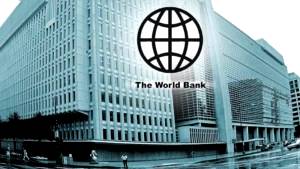Business
Diaspora remittances to Nigeria and other SSAs slow — World Bank

According to the World Bank, financial flows to Nigeria and other Sub-Saharan African (SSA) countries are slowing, but will reach $53 billion in 2022, up from $50 billion in 2021.
The Bank disclosed this in its ‘Migration Development Brief 37,’ which was released yesterday, noting that the growth rate in SSA remittances has slowed to 5.2 percent, down from 16.4 percent in 2021.
“Remittance flows to Sub-Saharan Africa increased 16.4 percent to $50 billion in 2021, the largest increase since 2018,” it said.
“However, the region is vulnerable to the effects of the global economy’s concurrent crises in 2022.”
“Remittance outflows will be determined by balancing increasing needs for assistance from the African overseas labor force with the availability of remittable income in host countries.”
“Remittance gains are likely to be held to 5.2 percent this year, representing an 11 percentage point drop in growth from 2021.”
“The economic crisis caused by the COVID19 pandemic resulted in a 14 percent decrease in remittances for countries in fragile and conflict-affected situations (FCS) in 2020.”
“This is primarily due to the medium-intensity conflict (as well as regulatory changes unfavorable to officially recorded flows) in Nigeria, the SSA’s largest remittance-receiving country and the eighth largest among low- and middle-income countries.” The drop in remittances was expected to be sharper in 2021, but flows recovered, aided once again by countries experiencing medium-intensity conflict, particularly South Sudan.
The World Bank also forecasted 3.9 percent growth in remittances to SSA countries in 2023, a 1.3 percent point decrease from 5.2 percent growth in 2022.
However, the value of remittances to SSA is expected to be $55 billion in 2023.
“The likelihood of further adverse international developments persisting into 2023 is high, and the rate of remittance flows to Sub-Saharan Africa may slow to 3.9 percent from 2021’s stellar 16.4 percent increase.”
“Food affordability and the deterioration of real incomes across African countries point to the need for financial assistance.”
